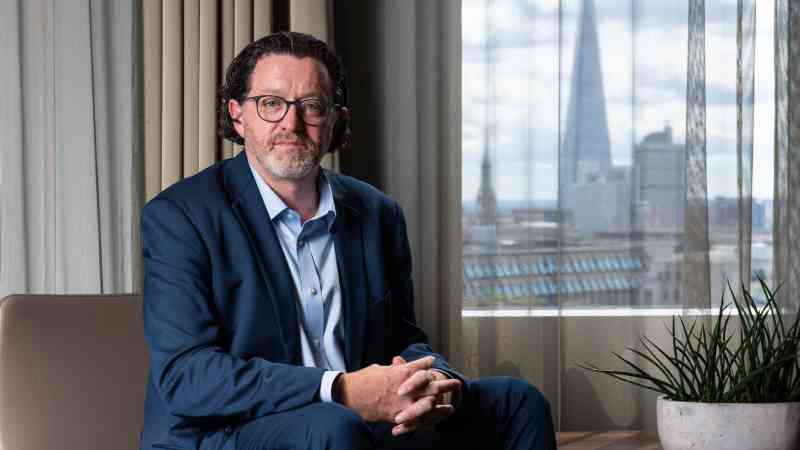When two bidders back down from making a formal offer for a business in a little over a year, questions start to be asked about what hidden nasties are lurking inside.
That was the situation at John Wood Group last Monday when the FTSE 250 oil and gas engineering company was left at the altar by Sidara, a Dubai-based buyer. Just over a year ago, the New York-based private equity house Apollo stepped back from making a formal offer that would have valued the Aberdeen-based company at £1.7 billion.
Another collapsed bid meant Wood was valued at £900 million as its shares tumbled after Sidara walked away. The once-proud business, which counts the likes of the oil companies Shell and BP among its clients, now faces questions about whether it could find a way back to the £5 billion valuation it held at its peak seven years ago.
Mick Pickup, an analyst at Barclays, summed up the views of many when he said: “We can understand if investors are questioning if there is anything untoward under the Wood hood.”
Those looking for answers take the story back ten years, when a deal was hammered out to create Amec Foster Wheeler — with what turned out to be damaging repercussions for Wood.
Run by the charismatic Samir Brikho, Amec bought the Swiss-based, New York-listed Foster Wheeler in 2014 for £1.9 billion with the aim of diversifying into new countries and businesses.
The deal was hampered by a fall in the oil price. Two years later Brikho was out — shortly after a profit warning and a dividend cut — and was replaced by the outsider Jon Lewis (who went on to be known as the boss of Capita, the outsourcing company). Wood swept in to buy the business in 2017, just as Lewis faced having to ask shareholders to cough up £500 million to bolster the Amec Foster Wheeler balance sheet and take a dividend suspension.

For Wood, the acquisition seemed an opportunity to diversify beyond its roots in conventional oil and gas drilling and get into new energy markets such as shale gas.
According to Iain Pyle, portfolio manager at Abrdn, which owns 2.3 per cent of Wood, it also came with “a lot of historic costs that really impacted free cashflow generation over a number of years”.
One of the issues was that Amec Foster Wheeler had signed up to fixed-term contracts, rather than ones that allowed it to charge more as costs rose, leaving it locked into loss-making arrangements. Another was a £103 million bill in 2021 for a deferred prosecution agreement with a division of Amec Foster Wheeler for “brazenly and calculatedly” paying bribes to officials in Nigeria, Saudi Arabia, Malaysia, India and Brazil over an 18-year period until 2014.
As Pyle said: “It has left the Wood share price at a low level and made it vulnerable to takeover approaches.”
In which case, why did its two suitors walk away? Apollo, which had been considering offering 240p a share in cash (almost twice its current 131.5p level), has never given a reason. A squabble over price seems the most likely factor, despite some wondering if the private equity house had balked at the nature of the contracts or whether financing was an issue.
Sidara told the market on Monday that it had pulled out because of “rising geopolitical risk and financial market uncertainty”.
It’s true that tensions in the Middle East may well have been a factor, as Sidara is the trading name of the Lebanese privately-owned business Dar Al-Handasah Consultants Shair and Partners. Last weekend, when Sidara had to decide whether to bid, the US was telling its citizens in Lebanon to leave the country.
It’s also true that Monday was a turbulent day on the financial markets, with the Nikkei in Japan collapsing 12 per cent, but it would be odd to blame a one-day market tumble for Sidara pulling out of a takeover that had been under discussion for months. By the end of the week, as many had predicted, most of the market’s falls had been recovered.
With hopes now receding of shareholders being rescued from their Wood losses by bidders, all eyes are on Ken Gilmartin, its chief executive since 2022. Hired as chief operating officer a year earlier, the Irishman is halfway through a three-year plan to overhaul the business, which employs 36,500 people around the world.
Despite its problems, Wood remains a big business, with a $6 billion (£4.5 billion) order book in 60 countries and only a handful of competitors on its scale, notably Australia’s Worley.
Gilmartin, who joined from the engineer Jacobs, has pledged to focus less on troublesome “lump-sum, turnkey, higher-risk project work”, which has failed to generate enough profits, and instead be “much more selective in the projects we take on, with a focus on reimbursable and low-risk work”.
Since 2019, cash generation has not been strong enough to cover Wood’s expenditure; Gilmartin’s goal is to generate positive “free cashflow” — a key measure of financial health — by 2025. That would help allow the resumption of the dividend, which has been suspended since the pandemic.
Gilmartin faces a tough audience with the City on Tuesday week, when he will report half-year financial figures. Beside him will be Arvind Balan, the new finance director, who arrived in April from Rolls-Royce, where he was finance director of the civil aerospace division. Investors hope Balan’s arrival will signal a turnaround on the scale of Rolls-Royce, where Tufan Erginbilgic, the chief executive, has orchestrated one of the City’s biggest rescues of a business he once described as a “burning platform”.
Some in the City reckon a turnaround of Wood would be more likely to succeed in private hands and believe that some investors were urging the board, led by chairman Roy Franklin, to engage in talks with a fresh round of bidders.
Pickup, the analyst at Barclays, noted that half of the top-20 investors in the group had been selling their shares during the bid process. “With the second possible offer, we sense that many investors had switched off,” he said.
Others, though, questioned the price being offered by the bidders and urged patience. Pyle at Abrdn regarded the 230p a share proposed by Sidara as “by no means a knockout”, and described Gilmartin as doing a “good job”.
Alessandro Dicorrado at the investment manager Ninety One, which holds shares in Wood through the firm’s UK Special Situations fund, which hunts for undervalued companies that could be turned round or taken over, reckoned that the company would offer better returns to investors as an independent operation, rather than selling out to a bidder. “The problem is that if you have been a long-suffering shareholder of Wood Group, that may not be the way you approach it,” he said.
For Mark Lacey, head of thematic investment at the asset manager — and a Wood shareholder — Schroders, Gilmartin is “an asset to the company”. Public disclosures show that Schroders cut its stake in Wood from 6 per cent at the end of March to 3.7 per cent in late July, which was part of a decision to “actively manage” its investment during the bid process.
Lacey is watching closely: “The management have laid out a clear plan to improve free cashflow generation over the next 18 months. So we will give them the 18-month period — but we will have constant contact with management to discuss milestones.”
While the heat is on, he reckons nasties are not lurking. “If a company pulls out of a bid, the first question is whether something is wrong. Are they looking at a Ferrari, lifting up the bonnet and finding a Reliant Robin engine? That is definitely not the case here.”
